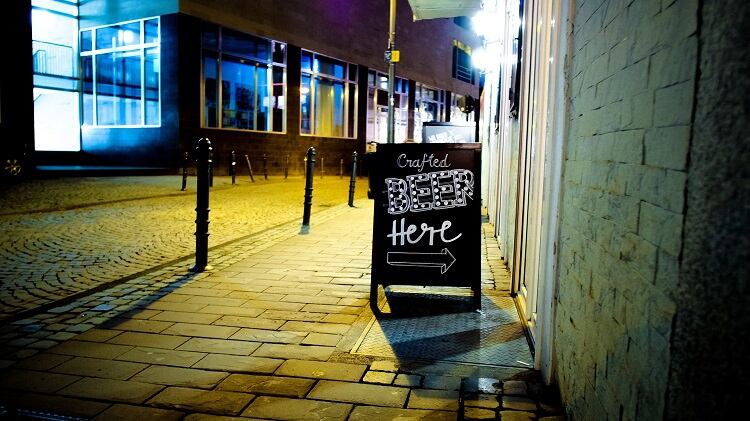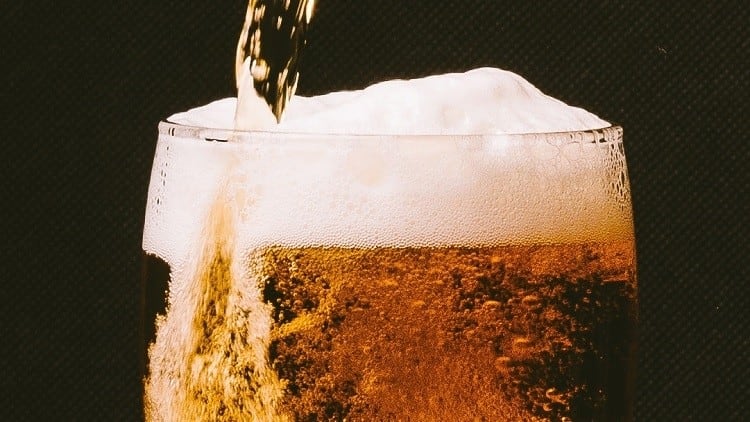The 2018 report Health on the High Street: Running on empty followed on from a 2015 study into the health of the UK’s high streets.
The report analysed 70 of the UK’s major towns and cities to determine which had the unhealthiest high street, based on the number of payday lenders, bookmakers, tanning salons and fast-food outlets versus outlets considered healthy.
Outlets considered good for people included leisure centres, health services, libraries and museums, art galleries, and pubs – due to their encouragement of social interaction.
In the report’s Richter scale of health, pubs and bars, cafés and coffee shops, and leisure centres were considered the outlets most conducive to social interaction.
Moreover, pubs and bars were considered as good for mental wellbeing as pharmacies, libraries, vape shops, cafés and coffee shops, convenience stores and tanning shops.
Vape shops were considered healthier businesses, due to their role in discouraging smoking, though the RSPH added that the "precise long-term effects of vaping are unknown".
Least healthy high street
According to findings, Grimsby has the least healthy high street in the UK, followed by Walsall and Blackpool respectively, while Edinburgh, Canterbury and Taunton boasted the healthiest outlets.
London’s high streets were not considered in the report because they were ranked separately in the city.
High street health
The UK's 10 unhealthiest high streets are:
- Grimsby
- Walsall
- Blackpool
- Stoke-on-Trent
- Sunderland
- Northampton
- Bolton
- Wolverhampton
- Huddersfield
- Bradford
The UK's 10 healthiest high streets are:
- Edinburgh
- Canterbury
- Taunton
- Shrewsbury
- Cheltenham
- York
- Brighton & Hove
- Eastbourne
- Exeter
- Cambridge
Investigating high street decline
The report also examined the changing nature of the UK’s high streets, which it found were now increasingly dominated by cafés, coffee shops, convenience stores, off licences, vape shops and abandoned premises.
According to the RSPH, there were 4,000 more fast-food shops and 1,000 more vape shops in 2017 than in 2014, while the number of coffee shops has increased by 31% to around 22,000.
Moreover, according to RSPH figures, on average 18 pubs per week closed between 2014 and 2017, however, as reported by The Morning Advertiser, a study by the Local Government Information Unit and the Portman Group in October 2018 revealed that 92% of councils believe that the night-time economy can prevent the decline of high street retail.
Need to redress imbalance
RSPH chief executive Shirley Cramer said: "When our time and money are converted into a loss at the bookmaker, a tan from a sunbed, a high-cost loan or a bucket of fried chicken, the high street is enabling and supporting poor health behaviours.
"Our Health on the High Street rankings illustrate how unhealthy businesses concentrate in areas that already experience higher levels of deprivation, obesity and lower life expectancy.
"Reshaping these high streets to be more health-promoting could serve as a tool to help redress this imbalance."
Recommendations for pubs
The report, which highlighted the importance as pubs as ‘third places’ – a neutral, public place away from the home (first) and the workplace (second) hosting “regular, voluntary, informal, and happily anticipated gatherings” – made several recommendations on how pubs can become healthier.
- Minimum unit pricing for alcohol to be implemented across all four nations of the UK, following its introduction in Scotland in 2018
- Mandatory display of food hygiene ratings in England and Scotland
- The Government to follow through on its stated plans to legislate on mandatory calorie labelling for the out-of-home sector
- Industry and all businesses selling food on the high street to reduce the calories in their products
- Local authorities, planning authorities and developers to encourage the development of ‘third places’ in town centres
The full report can be found here.




